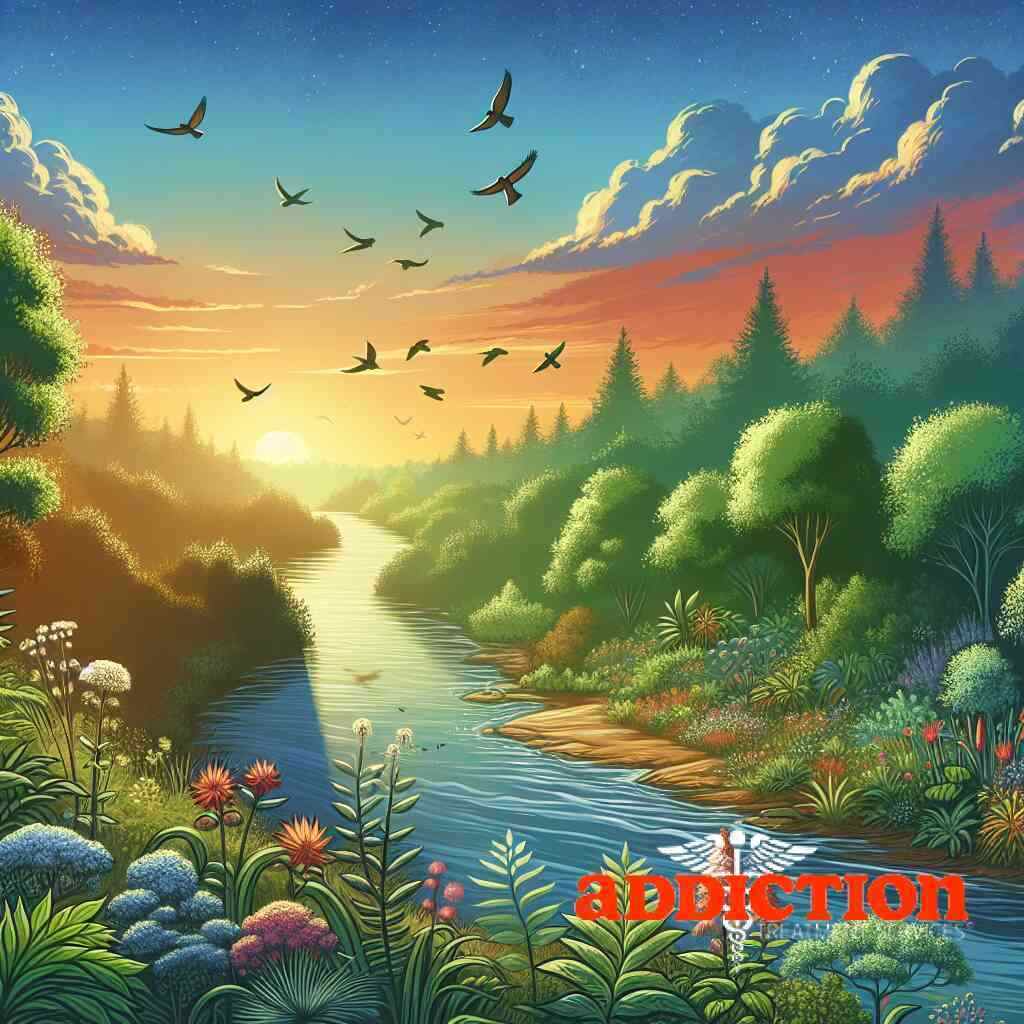 Posted On: 06/27/2024
Posted On: 06/27/2024Unlocking the Mystery of Process Addiction
Defining Process Addiction
Process addiction, also known as behavioral addiction, involves compulsive engagement in rewarding behaviors despite adverse consequences. Unlike substance addiction, where the addiction is to a chemical substance, process addiction centers around an activity or behavior that becomes the focus of a person’s life. Activities such as gambling, eating, shopping, or Internet use can spiral into an addiction when they consume a significant amount of an individual’s thoughts, time, and energy. The key identifier of process addiction is the continuation and often escalation of the behavior despite negative impacts on the individual’s health, finances, relationships, or work performance.
The Science Behind Behavioral Addictions
The scientific understanding of behavioral addictions has evolved considerably in recent years. Research indicates that behavioral addictions share many commonalities with substance addictions, including similar neurobiological changes in the brain. For instance, engaging in addictive behaviors triggers the release of dopamine, a neurotransmitter related to pleasure and reward, in much the same way that substance use does. This discovery has broadened the definition of addiction, recognizing that the compulsive need for rewarding experiences can develop without any substance use at all. Cognitive behavioral therapy for addiction, which can be instrumental in treating both substance and process addictions, focuses on identifying and modifying negative thought patterns and behaviors, offering a psychological approach to recovery.
Comparing Substance Use Disorders and Process Addictions
While substance use disorders and process addictions may activate similar pathways in the brain and share patterns of compulsive behavior, there are notable differences in how they manifest and impact an individual’s life. Substance addictions involve the physical ingestion of substances such as alcohol, drugs, or medication, leading to chemical alterations in the body and brain. These alterations can cause physical dependence, where the body starts to rely on the substance to function normally, and withdrawal symptoms upon cessation. In contrast, process addictions do not involve substance ingestion but can still lead to significant impairment or distress. Understanding these distinctions is crucial in developing effective treatment strategies for individuals suffering from these different types of addictions.
Identifying Process Addictions
Overview of Common Process Addictions
Process addictions, or behavioral addictions, manifest in various forms, acting on the brain’s reward system similarly to substance addictions. These compulsive behaviors can seriously impact an individual’s quality of life, affecting their mental, emotional, and physical well-being. The most common process addictions include gambling, internet use, sex, shopping, video gaming, and food. Recognizing these as legitimate addictions is crucial in providing appropriate support and treatment for those affected. Unlike substance addiction, where the addictive element is a chemical, in process addictions, the behaviors themselves become the source of addiction due to the neurological response they provoke.
Gambling Addiction
Gambling addiction, also known as compulsive gambling, is the uncontrollable urge to keep gambling despite the toll it takes on one’s life. Gambling can stimulate the brain’s reward system much like drugs or alcohol can, leading to addiction. Those with a gambling problem will continue to gamble whether they’re up or down, broke or flush, causing significant financial, personal, and emotional damage. It’s a cycle that’s hard to break without help, emphasizing the need for specialized treatment programs.
Internet Addiction
In the digital age, internet addiction has emerged as a concerning behavioral disorder, characterized by excessive use of the internet, social media, and online gaming, leading to distress or impairment. It can result in psychological issues such as anxiety, depression, and social isolation. The compulsion to stay online can interfere with daily life, responsibilities, and personal relationships, highlighting the need for comprehensive treatment approaches to address this growing problem.
Sex Addiction
Sex addiction involves persistent and escalating patterns of sexual behavior acted out despite increasing negative consequences to one’s self or others. It is not defined by the amount of sex or the type of activity but by the particular relationship an individual has to compulsive sexual behavior. Sex addiction can have profound implications on relationships and can often co-occur with other addictions or disorders, necessitating a multifaceted treatment approach.
Shopping Addiction
Also known as compulsive buying disorder, shopping addiction is an uncontrollable urge to shop in order to feel good. People who suffer from this addiction often experience a high from purchasing that momentarily relieves negative emotions or stress. However, this compulsive behavior can lead to financial problems, relationship stress, and feelings of guilt or embarrassment. Addressing this addiction requires a focus on understanding the underlying emotional triggers and developing healthier coping mechanisms.
Video Game Addiction
Video game addiction is characterized by excessive or compulsive use of video games, which interferes with a person’s everyday life. Individuals may play compulsively, isolating themselves from other activities and neglecting relationships, education, or work responsibilities. The immersive nature of video games can make them particularly enticing and potentially addictive, especially with the social and reward mechanisms built into these games. Treatment may involve behavior modification, therapy, and finding alternative activities to fill the void left by gaming.
Food Addiction
Food addiction involves a compulsive relationship to food, akin to the way a drug addict relates to drugs. Individuals with food addiction may find themselves eating in response to emotional stressors rather than hunger and typically crave high-sugar, high-fat foods that trigger a pleasure response in the brain. This addiction can lead to obesity, diabetes, and other health complications. Treatment often requires a combination of dietary management, psychological counseling, and support groups to address both the physical and emotional aspects of the addiction.
Understanding and recognizing the various forms of process addiction is the first step towards recovery. Each type of addiction has its own set of challenges and requires a specialized approach to treatment and management.
Signs and Symptoms of Process Addiction
Behavioral Changes
Individuals struggling with process addiction often exhibit noticeable changes in their behavior. This can include an increased amount of time spent engaging in the addictive activity, secrecy surrounding their behavior, and neglect of responsibilities. For example, someone with a gambling addiction might spend hours at a casino or on betting websites, hiding their activities from family and friends. Similarly, a person addicted to the internet may isolate themselves, spending excessive amounts of time online to the detriment of their social and professional life. Recognizing these behavioral shifts is crucial, as they can serve as early indicators of an emerging problem.
Psychological Symptoms
Process addiction can lead to a range of psychological symptoms that reflect the distress and conflict the individual experiences. Feelings of anxiety, depression, and irritability are common, especially if the person is unable to engage in the addictive behavior. The cyclic nature of addiction-whereby an individual seeks out the addictive behavior to alleviate these negative moods, only to experience guilt and shame afterwards-can exacerbate mental health issues. Professional help for process addiction near me can provide the necessary support to address these complex emotional patterns and foster a healthier mindset.
Impact on Personal and Professional Life
The consequences of process addiction on an individual’s personal and professional life can be profound. Relationships may suffer due to a lack of trust, financial difficulties, or neglect. Professionally, work performance may decline due to decreased focus, absenteeism, or preoccupation with the addiction. Over time, these consequences compound, leading to a deterioration in the quality of life and increasing the risk of further social, legal, and financial problems. It’s essential for those observing such impacts in their own life or in the life of someone they care about to seek support from addiction recovery services nearby.
Signs of Behavioral Addiction
Identifying signs of behavioral addiction is essential for early intervention and treatment. These signs may include a compulsive need to engage in the behavior despite negative outcomes, unsuccessful attempts to stop or moderate the behavior, and significant distress or impairment in various areas of life. Additional indicators can include withdrawal symptoms when unable to partake in the behavior and prioritizing the addictive activity over other interests or obligations. Recognizing these signs is the first step towards seeking effective treatments for process addiction, which can lead to a more balanced and fulfilling life.
Addiction recovery services nearby provide comprehensive support for those struggling with process addiction, offering a range of services designed to address the unique challenges posed by behavioral addictions. Whether through individual counseling, group therapy, or holistic care, accessing the right support can be pivotal in breaking the cycle of addiction and laying the foundation for lasting recovery.
The Road to Recovery
First Steps to Overcoming Addiction
Overcoming process addiction begins with recognizing the problem and acknowledging the need for change. Acceptance is a powerful first step, as it shifts the individual from a state of denial to one of readiness for action. The journey of recovery entails understanding the underlying reasons for the addiction, such as emotional distress, anxiety, or past traumas. Initial steps include setting realistic goals, seeking support from trusted family members or friends, and exploring the addiction treatment services near you. It’s essential to approach recovery as a comprehensive process, looking at both the addiction itself and the broader life circumstances that contribute to it.
The Importance of Professional Help
Navigating the complexities of process addiction often requires the guidance of mental well-being professionals. Expertise in addiction recovery, provided by therapists, counselors, and other healthcare providers, can offer the specialized support needed. Professional help can provide a structured environment for recovery, offering evidence-based therapies such as Cognitive Behavioral Therapy (CBT), group therapy, and individual counseling. These services help individuals understand their addictive behaviors, develop coping strategies, and address any co-occurring mental health issues. Seeking professional guidance early in the recovery process can significantly enhance the chances of long-term success.
Addiction Treatment Services Directory
Accessing a comprehensive directory of addiction treatment services is pivotal for finding the right support. Addiction Treatment Services offers a resource-rich platform, detailing the services available across all 50 states. Whether you’re looking for outpatient care, residential treatment facilities, or specialized programs like those for dual diagnosis treatment, the directory serves as a valuable starting point. Utilizing an addiction treatment services directory facilitates the search for suitable treatment options, making it easier to compare services and select a program that aligns with your specific needs and circumstances.
Choosing the Right Treatment Facility
Selecting the appropriate treatment facility is a crucial decision that can significantly impact the recovery journey. Each individual’s needs are unique, necessitating a personalized approach to treatment. When choosing a facility, consider factors such as the types of addiction treated, the qualifications of the staff, the treatment methodologies used, and the availability of support for mental health issues. It’s also important to evaluate whether a program offers aftercare or relapse prevention strategies. Comparing the offerings of various treatment facilities can provide insights into their strengths and specialties, helping to ensure that you or your loved one receives the most effective care possible.
Treatment Options for Process Addiction
Cognitive Behavioral Therapy
Cognitive Behavioral Therapy (CBT) is a cornerstone in the treatment of process addiction, offering a structured approach that helps individuals identify and challenge negative thought patterns. By focusing on the cognitive processes that contribute to addictive behavior, CBT enables individuals to develop healthier coping mechanisms. This form of therapy is particularly effective because it addresses the underlying reasons for the addiction, not just the symptoms. Treatment sessions may involve setting goals, learning to handle triggers without resorting to addictive behavior, and building self-esteem. Recognizing the importance of sustainable recovery, Treatments for process addiction often integrate CBT as a core component, due to its proven efficacy in both individual and group settings.
Addiction Counseling
Addiction counseling provides a supportive environment where individuals can explore the emotional and psychological aspects of their addiction. Counselors specialized in addiction recovery facilitate a deeper understanding of the compulsive behaviors and offer guidance on navigating the complexities of recovery. Sessions may cover a wide range of topics, including the impact of addiction on relationships, coping with stress without reverting to addictive behaviors, and planning for a future free from addiction. The personal insight gained through addiction counseling is invaluable, empowering individuals with the knowledge and skills necessary for long-term recovery.
Intensive Outpatient Programs
Intensive Outpatient Programs (IOPs) offer a structured treatment option that allows individuals to remain in their home environment while receiving comprehensive addiction treatment. These programs are designed to accommodate the schedules of those who may have commitments to family, work, or education, providing a flexible yet effective approach to recovery. IOPs typically involve multiple treatment sessions per week, covering topics such as relapse prevention, stress management, and social support building. By offering a blend of group therapy, individual counseling, and sometimes even family therapy, IOPs provide a robust support system for individuals at various stages of their recovery journey.
Mental Health Services and Behavioral Health Services
Addressing co-occurring mental health conditions is a critical aspect of treating process addiction effectively. Many individuals struggling with behavioral addictions may also face mental health challenges such as depression, anxiety, or post-traumatic stress disorder (PTSD). Mental health services and behavioral health services play a pivotal role in providing a holistic treatment plan that addresses both addiction and underlying mental health issues. These services often include psychiatric evaluation, medication management, and therapy that targets specific mental health conditions. The integration of mental health care into addiction treatment ensures that individuals receive comprehensive care tailored to their unique needs, enhancing both their emotional well-being and recovery success.
Support Systems and Relapse Prevention
Building a Supportive Environment
Creating a supportive environment is a fundamental aspect of recovering from process addiction. It’s about fostering a setting-whether at home, work, or socially-that encourages positive behavior changes and supports the recovery journey. This involves engaging with mental well-being professionals who understand the complexities of addiction and can provide guidance tailored to individual needs. Additionally, modifying one’s living space to minimize triggers, setting healthy boundaries, and communicating needs to friends and family members are critical steps. A supportive environment not only nurtifies healing but also empowers individuals to build resilience against the temptations of addictive behaviors.
Addiction Support Groups
Participation in addiction support groups like Alcoholics Anonymous (AA) or specific groups related to the form of process addiction can be instrumental in recovery. These groups offer a platform for sharing experiences and strategies, reducing feelings of isolation by connecting with others who are facing similar challenges. Attendance at Alcoholics Anonymous meetings for support groups provides not just a sense of community but also access to a collective wisdom on navigating the road to sobriety. The peer support model fosters a sense of accountability, encouraging members to maintain their recovery efforts and celebrate milestones together, which can significantly enhance the recovery process.
Relapse Prevention Strategies
Relapse prevention strategies are critical in the journey to overcome process addiction, involving both recognizing potential triggers and developing coping mechanisms to deal with stress and temptation. Integrating relapse prevention methods into the recovery plan can include activities such as mindfulness meditation, regular physical exercise, or engaging in hobbies that divert attention from the addictive behavior. Additionally, establishing a plan for dealing with high-risk situations, which may involve contacting a sponsor, therapist, or supportive friend, helps to manage cravings and maintain focus on long-term recovery goals.
Continued Care and Recovery Support Services
After the initial phase of treatment, continued care and recovery support services become paramount in sustaining the progress made. This long-term approach may involve ongoing therapy sessions with addiction psychotherapy treatments, regular check-ins with a counselor, or participation in outpatient programs. The objective is to reinforce the coping skills learned during intensive treatment and address new challenges as they arise. Accessing services such as sober living homes in proximity can offer a transitional space that supports sobriety with structures similar to those experienced in treatment facilities. Engaging in these extended care options creates a comprehensive support network that enhances resilience against relapse, ensuring a smoother journey towards lasting recovery.
Living with Process Addiction
Managing Compulsive Behaviors
Living with process addiction necessitates a comprehensive approach to manage compulsive behaviors effectively. Strategies often involve developing mindfulness practices that encourage individuals to remain present and aware of their actions and motivations. Therapy sessions focused on cognitive behavioral techniques can further assist in recognizing triggers and developing healthier response mechanisms. Additionally, self-help tools, such as journaling or engaging in support groups, can provide outlets for expressing feelings and tracking progress. These measures are designed not to suppress compulsive behaviors outright but to understand and redirect them in more constructive ways. Such practices are instrumental in rehabilitating the reward system in the brain, gradually diminishing the reliance on addictive behaviors to derive satisfaction or escape discomfort.
Lifestyle Modifications for Recovery
Recovery from process addiction often requires significant lifestyle modifications to support a healthier, more balanced living. These changes may include adopting a structured daily routine, incorporating regular physical activity, and ensuring proper nutrition. Equally important is the cultivation of hobbies or interests that can replace the time previously devoted to compulsive behaviors, providing a sense of fulfillment and purpose. Furthermore, creating an environment that minimizes triggers-such as removing access to gambling sites for a gambling addict, or limiting money spent on shopping-can help mitigate temptations. Embracing these lifestyle modifications not only aids in recovery but also enhances overall well-being, contributing to a more rewarding and sustainable sober living.
Sober Living and Lifestyle
Sober living environments offer those recovering from process addiction a supportive and structured setting that promotes sobriety and personal growth. These environments typically operate as communal living spaces where residents share responsibilities and partake in recovery-oriented activities. The emphasis on mutual support and accountability within these communities fosters a sense of belonging and stability, which is critical during the recovery process. Additionally, sober living lifestyles often incorporate principles of holistic care, focusing on the mind, body, and spirit, to address the multifaceted nature of addiction. Engaging in regular therapy sessions, mindfulness practices, and physical wellness activities are key components of maintaining a sober lifestyle. As such, sober living environments can be instrumental stepping stones towards long-term recovery, providing the necessary foundation and support for individuals to rebuild their lives.
Early Intervention and Recovery Process
The importance of early intervention in the recovery process for process addiction cannot be overstated. Recognizing the early signs of addiction and seeking treatment can significantly improve the outcome for individuals struggling with compulsive behaviors. Early intervention strategies may include screening for symptoms of process addiction during routine medical checkups or providing educational resources on the dangers of compulsive behaviors. For families and friends, understanding the signs of process addiction and knowing how to approach a loved one about seeking help are crucial first steps toward recovery. Treatment modalities for early intervention often involve a combination of therapy, support groups, and potentially medication-assisted treatment to address underlying issues contributing to the addiction. Engaging in treatment at the onset of addictive behaviors can prevent the escalation of addiction, making the recovery process more manageable and increasing the likelihood of long-term success.
For those seeking a holistic approach to recovery, the integration of holistic addiction care can offer comprehensive support by addressing physical, emotional, and spiritual health simultaneously.
Success Stories: Overcoming Process Addiction
Journeys of Recovery
Overcoming process addiction often involves deeply personal journeys filled with challenges, introspection, and ultimately, triumph. These stories highlight the resilience of the human spirit and the ability to reclaim one’s life from the grip of compulsive behaviors. For many, the road to recovery begins with a moment of clarity-a realization that their lives have become unmanageable because of their addiction. This acknowledgment is a crucial first step, leading individuals to seek help and commit to change. As these journeys unfold, every milestone reached serves as a testament to the strength and determination required to overcome process addiction. Drawing inspiration from others who have walked this path can offer hope and encouragement to those just beginning their recovery process.
The Role of Therapy for Addiction
Therapy plays a pivotal role in the treatment of process addiction, offering a safe space for individuals to explore the underlying causes of their compulsive behaviors. Through modalities such as Cognitive Behavioral Therapy (CBT), individuals learn to identify and challenge the thought patterns that contribute to their addiction, replacing them with healthier coping mechanisms. Therapy sessions also address emotional and psychological wounds, facilitating healing on a deep level. The collaborative relationship between therapist and client is foundational, providing the guidance and support needed to navigate the complexities of addiction. Success stories often highlight the transformative power of therapy, underscoring its effectiveness in helping individuals achieve lasting recovery.
Life After Process Addiction Treatment
Emerging from the depths of process addiction to establish a fulfilling life post-treatment is a remarkable achievement. Life after treatment embodies the restoration of hope, the rebuilding of relationships, and the pursuit of goals that were once overshadowed by addiction. Individuals often discover newfound strengths and passions, leading them to careers, hobbies, and social engagements that enrich their lives and support their sobriety. Embracing a lifestyle that prioritizes well-being, including maintaining a balanced diet, regular exercise, and mindfulness practices, further enhances resilience against relapse. These stories of transformation are profound, demonstrating that recovery from process addiction not only restores individuals to their former selves but can also propel them to new heights.
Inspirational Outcomes
The most powerful aspect of overcoming process addiction is the inspirational outcomes that ripple through communities, families, and individual lives. Success stories serve not only as beacons of hope for those still struggling but also as powerful reminders of the strength inherent in every individual facing addiction. They highlight the possibility of redemption and the potential for a bright future, free from the chains of compulsive behaviors. Moreover, many who have overcome process addiction choose to give back, becoming advocates, counselors, or support group facilitators to help others on their recovery journey. These acts of service deepen their own recovery and contribute to a cycle of healing and growth. The inspirational outcomes of overcoming process addiction illustrate the profound impact that treatment, perseverance, and support can have on individuals and the broader community.
Conclusion: Embrace a New Chapter

The Path Forward
The journey through process addiction is undeniably challenging, yet it unfolds a path toward personal growth and healing. Embracing a new chapter after process addiction involves committing to a lifestyle that supports ongoing recovery and wellness. It means integrating the coping strategies, mindfulness practices, and healthier behaviors acquired during treatment into everyday life. To continue the momentum of recovery, individuals are encouraged to engage in lifelong learning about themselves and the nature of addiction, strengthening their resilience against potential relapses. Moreover, setting new goals and dreams can redirect the focus from the past to a hopeful and vibrant future. The path forward is paved with patience, perseverance, and the unwavering belief in one’s capacity to change.
The Importance of Seeking Help
Recognizing the need for help and taking the initial step to seek treatment are pivotal moments in the recovery process. Process addiction, like all forms of addiction, thrives in isolation but diminishes in strength when confronted with a supportive community and professional guidance. Seeking help is a sign of strength, not a weakness. It indicates a willingness to take control back from the compulsive behaviors that have overshadowed life. Addiction Treatment Services comprehends the complexities of addiction and the profound impact professional help can have on an individual’s recovery journey. Whether through behavioral health services near me, intensive outpatient programs, or individual therapy, the goal is to provide a compassionate, comprehensive approach to overcoming process addiction.
Resources and Further Reading
For those interested in deepening their understanding of process addiction and exploring additional resources, a wealth of information is available. Engaging in further reading can empower individuals with knowledge, offering insights into the science of addiction, recovery stories, and strategies for maintaining sobriety. Websites like Addiction Treatment Services provide access to articles, research findings, and testimonials that illuminate the many facets of addiction and recovery. Additionally, books written by experts in the field, peer-reviewed journals, and reputable health websites can serve as valuable resources in the ongoing education about process addiction and its treatment.
Addiction Treatment Services Near You
Finding the right addiction treatment service is crucial for embarking on a successful recovery journey. With facilities and programs available in all 50 states, Addiction Treatment Services is a comprehensive directory designed to connect individuals with the addiction treatment centers and services best suited to their unique needs. From detoxification to residential treatment, outpatient care, and specialized programs like dual diagnosis treatment, the options are extensive and accessible. By seeking addiction treatment services near you, you take a significant step towards reclaiming your life and establishing a foundation for long-term recovery and well-being.
Navigating the complexities of process addiction requires courage, support, and the right resources. As you embark on this new chapter, remember that recovery is a journey of transformation and growth. With commitment, the right support system, and access to quality treatment, overcoming process addiction and embracing a fulfilling sober life is entirely possible.
Frequently Asked Questions
Question: What is Process Addiction and how can Addiction Treatment Services help with its treatment?
Answer: Process addiction, also known as behavioral addiction, refers to the compulsive engagement in rewarding behaviors like gambling, shopping, internet use, or eating, despite adverse consequences. Addiction Treatment Services recognizes the unique challenges these types of addictions pose and offers a comprehensive directory of addiction treatment centers that specialize in the treatment of process addictions. Our services connect individuals with specialized programs that provide tailored therapy, including Cognitive Behavioral Therapy (CBT), addiction counseling, and intensive outpatient programs. By leveraging our extensive network, individuals struggling with process addiction can find the support and professional care they need to embark on a path toward recovery.
Question: Can Addiction Treatment Services provide recommendations for both inpatient and outpatient treatment facilities for behavioral addiction?
Answer: Yes, Addiction Treatment Services offers a comprehensive directory that includes both inpatient and outpatient treatment facilities specifically tailored to meet the needs of individuals facing behavioral addiction. Our platform facilitates easy access to a wide range of addiction treatment services near you, enabling customized care that aligns with each individual’s unique circumstances, whether requiring intensive residential treatment or the flexibility of outpatient care. By providing detailed information on various facilities, including therapy options, program structures, and specializations, we empower those seeking help to make informed decisions about their recovery journey.
Question: In the blog post “What is Process Addiction?” The role of Cognitive Behavioral Therapy was mentioned. How does Addiction Treatment Services assist in connecting individuals to CBT-focused treatment programs?
Answer: In the discussion of process addiction treatment, Cognitive Behavioral Therapy (CBT) is highlighted for its effectiveness in addressing the underlying thought patterns and behaviors contributing to addiction. Addiction Treatment Services assists individuals by offering a curated list of treatment centers that specialize in CBT among other therapeutic approaches. Through our directory, we connect you with addiction treatment services that utilize CBT to help manage compulsive behaviors associated with process addictions, ensuring you have access to professionals skilled in this evidence-based treatment. Our goal is to find the right support system – one that offers advanced, personalized therapy options like CBT – straightforward and stress-free.
Question: What types of support can loved ones find through Addiction Treatment Services when trying to help someone with a behavioral addiction? Family Therapy in Addiction Recovery provides invaluable support.
Answer: Addiction Treatment Services understands the importance of comprehensive support not only for individuals struggling with behavioral addiction but also for their families and loved ones. Our platform offers access to addiction treatment centers that provide family programs, counseling, and educational resources designed to engage loved ones in the recovery process. By providing a directory of services that include family therapy and support groups, we facilitate a collaborative approach to addiction treatment, empowering families to become integral parts of their loved one’s recovery journey. Additionally, our resources offer insights and strategies for creating a supportive environment that encourages lasting recovery.
Question: How does Addiction Treatment Services address the need for relapse prevention in the recovery process from process addiction?
Answer: Relapse prevention is a critical aspect of sustainable recovery from process addiction. Addiction Treatment Services addresses this need by connecting individuals with addiction treatment centers that incorporate comprehensive relapse prevention strategies into their programs. From cognitive-behavioral techniques and stress management skills to lifestyle modifications and ongoing support groups, the treatment facilities we recommend are dedicated to equipping individuals with the tools necessary for long-term recovery. Our emphasis on connecting you with programs that offer continued care and support services underscores our commitment to helping individuals achieve and maintain sobrier



